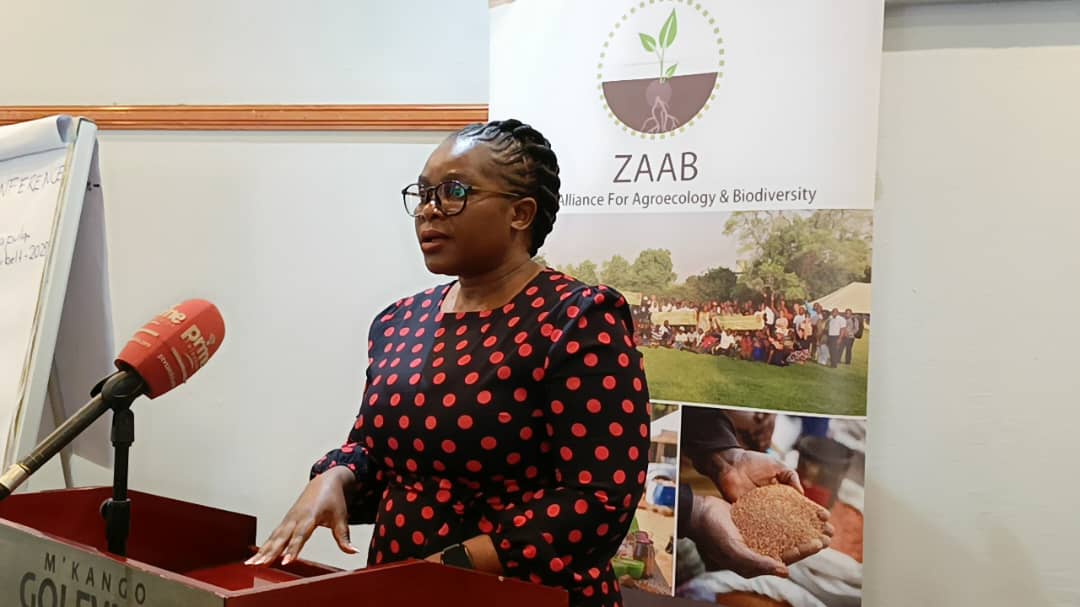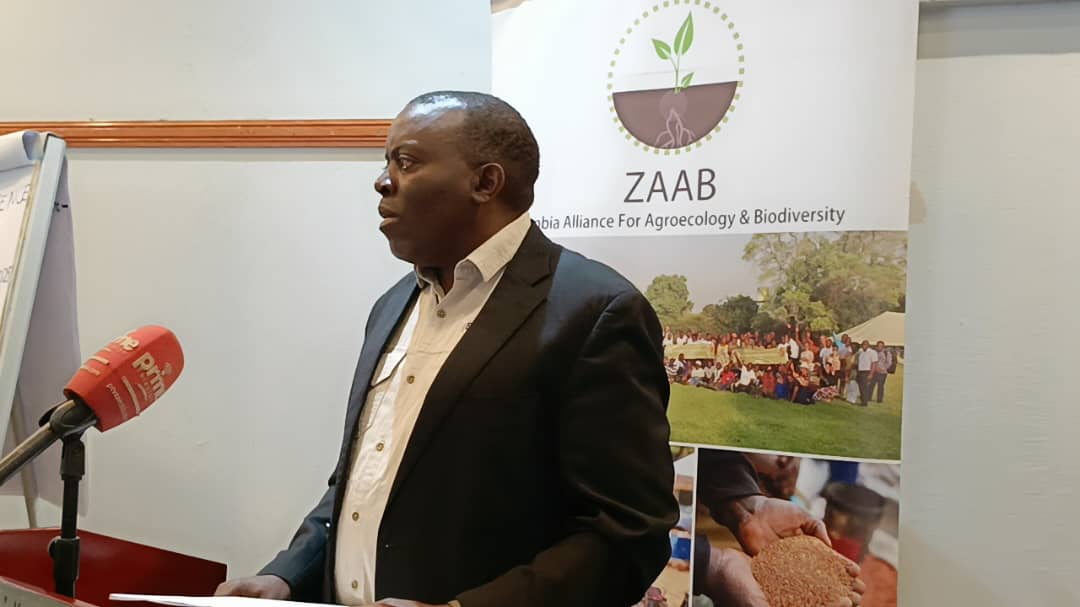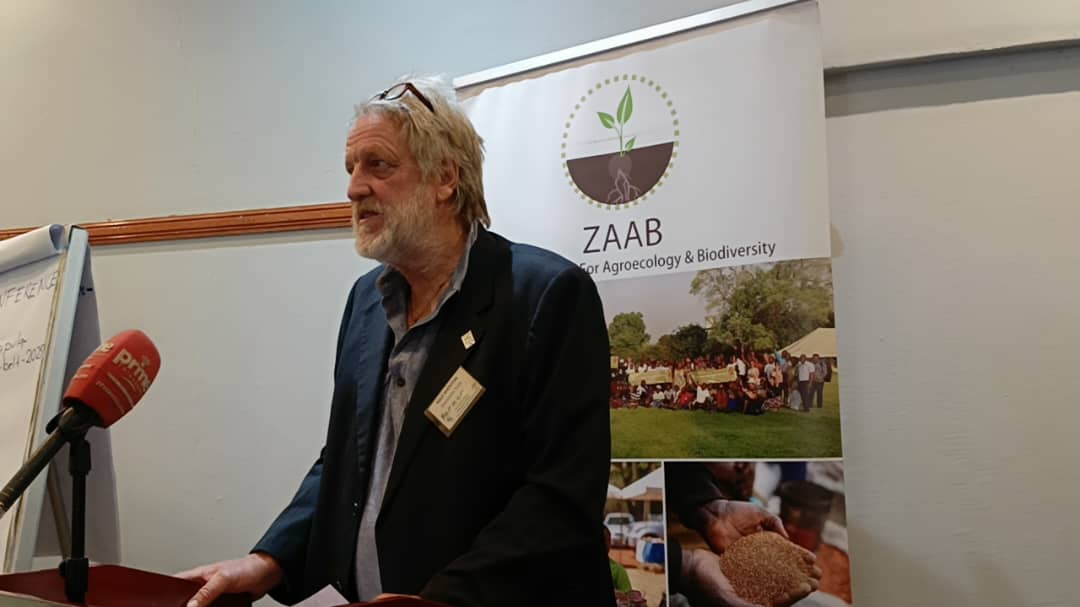Soil, Seed, and Survival

The fight for food security begins with land, biodiversity, and tradition.
By Francis Maingaila
Lusaka, Zambia24 – July 21, 2025
Zambia’s food security and environmental advocates have called on the government to urgently adopt agroecology and traditional land-use practices as a response to growing hunger, climate pressure, and the disintegration of cultural systems in rural communities.
Speaking at a food systems dialogue held in Lusaka, organized by the Zambia Alliance for Agroecology and Biodiversity (ZAAB) in collaboration with the Mbeza Royal Establishment, stakeholders warned that Zambia’s current industrial agriculture model is failing to feed the population and undermining cultural integrity.
ZAAB National Coordinator Mutinta Nketani said the country’s reliance on extractive farming practices is not only contributing to food insecurity but also stripping communities of their dignity and traditional identity.
“When a mother stands beside an empty granary and cannot promise porridge to her hungry child, she is not only facing food insecurity—she is calculating whether to sacrifice her dignity,” Nketani said.
She stated that rural fields are more than food production plots and serve as community centers, spiritual spaces, and repositories of indigenous knowledge.
“Our food systems must feed more than bodies. They must also preserve our identity, heal our broken communities, and protect our cultural heritage,” she added.
According to Nketani, Zambia once sustained approximately nine million wild animals and one million head of cattle without exhausting its resources, thanks to well-organized communal grazing systems.
She said the collapse of such systems has led to environmental degradation and disjointed land use.
“Today, we have far fewer animals, yet our land is degraded. The difference is management. There’s no coordination—everyone does what they want. This is how food systems fail,” she said.
She added that Zambia needs to critically examine the components of its food systems and assess their contribution to climate change, biodiversity loss, and greenhouse gas emissions.
The food systems dialogue forms part of preparations for the Ikubi Lya Bana Munyati Traditional Ceremony scheduled to take place from September 18 to 21, 2025.
The ceremony is expected to serve as a platform for stakeholders to further deliberate on sustainable food systems, agroecology, and cultural restoration.

Traditional leaders have also joined the call for reform. Chief Nalubamba of the Ila-speaking people of Namwala District, Southern Province, emphasized the need to collaborate in transforming food systems and urged that the process begin from the food baskets of grandmothers and within cultural expressions such as songlines, rituals, and land-based stories.
He said that when rains delay and seeds fail to sprout, it is not just an issue of hunger, but also emotional loss, calling for the creation of field schools based on ancestral knowledge and the establishment of seed banks located next to storytelling circles.
Chief Nalubamba warned that Zambia stands to lose its cultural backbone if policymakers continue to ignore indigenous food practices.
“Culture begins where the soil brings life. Traditional food is not just eaten—it is shared, honored, and sung into being,” he said.
He stressed that reconnecting people to the land through culturally grounded agricultural practices is essential to restoring dignity and strengthening communities.
 Environmental advocate and Grassroots Trust Director Rolf Shenton said each farming household has the potential to increase productivity and earn ten times more profit by adopting agroecological methods.
Environmental advocate and Grassroots Trust Director Rolf Shenton said each farming household has the potential to increase productivity and earn ten times more profit by adopting agroecological methods.He condemned the ongoing destruction of Zambia’s ecosystems, particularly through deforestation and poorly managed grazing.
He pointed out that conservation methods now labeled as “agroecology” and “agroforestry” were once integral to traditional communities.
“It was taboo to kill a tree. Trees were managed, not destroyed. The idea of uprooting and stumping fields permanently came from colonial systems—not our own,” Shenton said.
Speakers at the event warned that without a national commitment to agroecological principles that emphasize biodiversity, traditional knowledge, and sustainable land use, Zambia will remain caught in recurring cycles of food insecurity and environmental decline.
They further urged the government to involve local communities in the design and implementation of food policies and to legally protect indigenous knowledge systems from erasure.
“Let no child go to sleep with a full belly but an empty heart and uncertain future,” Nketani said. “Our food systems must nourish both stomachs and spirits.”
The dialogue concluded with a collective appeal for immediate government intervention, including a nationwide review of food policies to incorporate traditional farming systems, local leadership structures, and ecological models of agriculture.
As Zambia continues to face erratic rainfall and declining crop yields due to climate change, advocates say agroecology presents a timely and practical alternative to monoculture and chemical-based farming approaches currently favored by policy.



Comments
Post a Comment